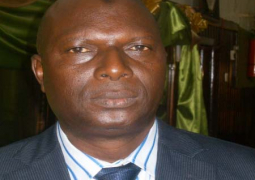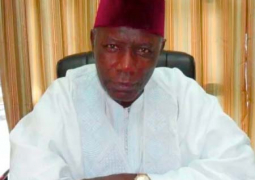The
African Union Inter-African Bureau for Animal Resources (AU-IBAR), ECOWAS
Commission and FAO, in collaboration with the Ministry of Agriculture, Monday
held a Regional Livestock Policy Hub (RLPH) inauguration workshop.
The
specific objective of the workshop was to critically reflect on the
responsibility and contribution of the Regional Livestock Policy Hub in the
development of the livestock sector, including an action plan, as well as to
identify the role and steps to formalise the RLPH as a tool of the regional
institutions.
The
seminar, which brought together participants from various countries in the
sub-region, was coordinated by the Department of Livestock Services.
In
his inaugural workshop statement held at the Ocean Bay Hotel, the deputy
Minister of Agriculture, Sherifo Bojang, said this was part of the government’s
continuing efforts to improve livestock production and productivity for poverty
reduction and empowerment of rural livestock farmers.
He
said the government envisages sector reform of The Gambia agricultural
transformation programme, which seeks to address these issues.
“This
is purposely geared towards providing a comprehensive policy oversight, sector
strategy and address the lingering programme of value chain development in
respect of commercialisation, input supply, access to affordable agricultural
financing, as well as land tenure reform.”
This
is in line with ECOWAS and partners such as AU-IBAR evidence –based advocacy
for policies and legislation changes for increase investment in livestock
sector and improvement of critical competencies of veterinary services within
the AU member states.
Deputy
Minister Bojang further added that livestock contributes about 8.6 per cent of
national GDP and 29.6 per cent of agricultural GDP.
It
also has enormous potential to make a significant contribution to employment
creation, empowerment and increasing food security.
He
also stated that the inauguration meeting was as a result of a Gambia
government, ECOWAS and AU-IBAR collaborative initiative to establish a regional
livestock policy hub for the livestock sub-sector.
Also
speaking on the occasion was Dr Baboucarr Jaw, Chief Animal Health officer at
AU-IBAR, who said the workshop sought to critically reflect on the results of
the Lome workshop, and to operationalise a regional livestock policy hub that
would guide the livestock policy development process in ECOWAS, with a view to
enhancing participation in regional and national CAADP process and increasing
investment in the livestock sector.
The
workshop would also reflect on the best anchorage of the platform that would
bring about value addition and ensure sustainability, he added.
Dr
Jaw also encouraged all at the meeting to come up with a strategy to support
the livestock sector in the formulation of the 2nd generation of the regional
and National Agricultural Investment Plans.
He
said AU-IBAR is committed to supporting this process, and together they would
work to ensure the prominence given to the livestock sector is commensurate
with its contribution to agriculture GDP and the national economy.
He
reiterated AU-IBAR’s unwavering assurance to continue supporting ECOWAS and its
institutions, and to foster their exemplary partnership with FAO, and OIE in
supporting their MSs to make judicious use of their comparative advantage and
applying the principle of subsidiarity.
In
his welcome remarks, the director-general of the Department of Livestock
Services, Dr Duto Sainey Fofana, underscored the role and importance of the
livestock sector in the country’s economic development, in general, and food
production, in particular.
The
sector accounts for 30 per cent of agricultural GDP and 10 per cent of national
GDP, he said.
Read Other Articles In Article (Archive)



